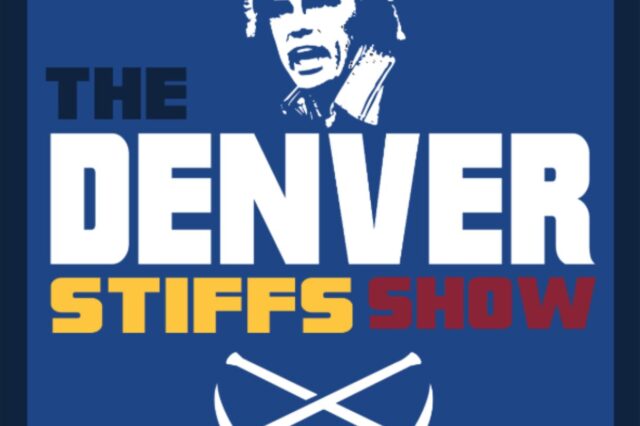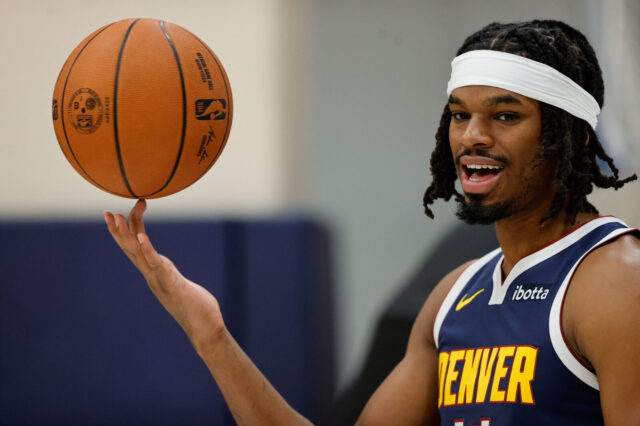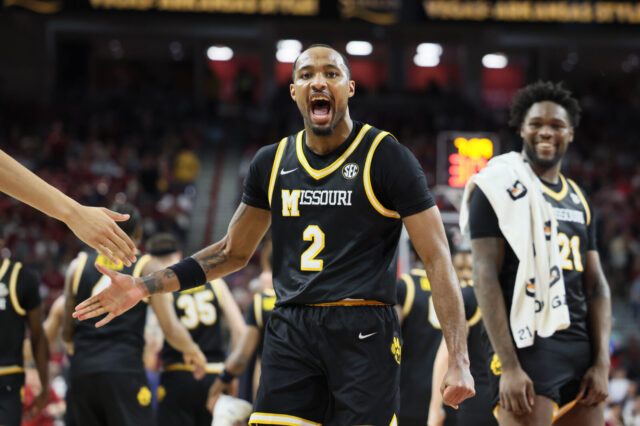Will Barton Player Evaluation
Overview
Will Barton just put together the best season of his career. ‘The Thrill’ served as Michael Malone’s swiss army knife in 2017-18, filling numerous roles for a depleted roster and proving himself useful no matter the task. The term ‘utility man’ comes to mind but it doesn’t quite encapsulate the extent to which Barton was relied upon as the Nuggets endured brutal injuries and struggled to sort out the back end of their roster.
Barton played in 81 games this season, coming off the bench 41 times and averaging 33.1 minutes per game. This makes him eligible for the NBA’s ‘Sixth Man of the Year’ award and while he’s almost certainly not going to win it, he’s built a sneaky strong case for himself in the eighth year of his career.
In the 40 games that the Baltimore native started, he spent time at both the shooting guard and small forward position. Barton is a gamer, but he’s not a positive player on the defensive end. Given Denver’s defensive deficiencies, Malone felt inclined to start veteran Wilson Chandler at the three for much of the season. That logic is easy to follow, but that decision, along with the devastating injury to Paul Millsap, may have stymied the unearthing of Denver’s most potent lineup.
Jamal Murray, Gary Harris, Will Barton, Paul Millsap and Nikola Jokic only played 65 minutes together across 15 games this season. In those 65 minutes, their offensive rating was a thermonuclear 124.7 and their net rating was a remarkable 32.7. I’ll say it now before the small sample size police come knocking—that mark would never hold up across major minutes. But it’s one of many examples of how well Barton slid into the starting unit.
This dude can light it up:
When ‘The People’s Champ’ wasn’t holding a bruised and battered starting unit together, he was providing pop off the bench as the second unit’s primary scorer. Barton is a disciple of Allen Iverson, noting him as one of the ‘GOAT’s’ where he grew up and one of his biggest inspirations on the court. That’s on full display when Barton comes off the bench at the two or the three.
But perhaps the most impressive part of Will Barton’s 2017-18 season was his willingness to take on the role of back up ball handler in the absence of an ideal option—or in other words, since Emmanuel Mudiay was the only alternative.
Barton has been criticized at times as a selfish player, or a ‘ball hog’ because of his tendency to develop tunnel vision when he fancies himself as having the hot hand. His ruthless scorer’s mentality can lead to prolonged stretches of detrimental ‘hero ball’ and his inability to pass the ball to Nikola Jokic in key moments can lead to accelerated hair loss for the most passionate of Nuggets fans.
But despite his reputation, Barton actually led all Nuggets in assists per game—with the obvious exception of Jokic. Barton is the only other player on the roster to average four or more assists, and he boasts a surprisingly impressive assist to turnover ratio. Despite his reputation as a chucker and hero ball enthusiast, Barton remained relatively efficient. He posted 113.1 points per 100 shot attempts, per cleaningtheglass.com. That mark is good for third best on the team and puts him in the 80th percentile for players grouped under CTG’s ‘Combo’ designation.
This is what makes the evaluation of Will Barton both so interesting and so arduous. Because his detrimental tendencies are so predictable, his mistakes look as if they’re especially devastating. His turnovers and poor shot selection incite a particular frustration—a compound of both the high bar he sets on his best nights and the frequency with which he finds himself in the middle of high leverage situations. But that doesn’t necessarily mean they should be weighted any differently than the mistakes of other players.
Barton made a positive impact that few Nuggets matched in 2017-18. In fact, he made the kind of impact that few players can match period.
That brings us to:
Key Stat – 15+, 5+, 4+
Barton’s case for 6MOY rests on not just his versatility but also the starter-level production he was able to provide despite making more than half of his appearances off the bench. In 81 games, Barton averaged 15.7 points, 5 rebounds and 4.1 assists on 45 percent from the field.
There were but 16 other players in the 2017-18 NBA season that finished the season with a line of 15/5/4 or better. Almost every single one of them is a househeld name.
Most of them are future hall of famers:
This content is no longer available.
Only a fool would compare Barton to those players in any other context. Barton is near the bottom of the list in each category and most of the names here were the authors of seasons that easily cleared the statistical lines I’ve drawn in the sand. But that’s exactly the point. Very few players are able to clear this bar of versatility and efficiency, and those that do are all-world talents more often than not. Barton may have been relied upon heavily, but he was a role player on this team, and role players just don’t produce at that level.
Best Moment – Game Winner in Chicago
On November 30th of 2017, the Nuggets took on the struggling Chicago Bulls. The Nuggets were without their coveted free agent signing Paul Millsap after he had injured his wrist earlier in the year. To make matters worse, star center Nikola Jokic sprained his ankle after playing in just 15 minutes of the game. Luckily, the Nuggets had Barton, who turned in a vintage “Thrilling’ performance. He put up 37 points off the bench on 13-19 from the field including this game winning shot.
Areas of Strength
As the key stat highlights, Barton’s strength is his versatility. He’s not an ideal playmaker but he’s a capable one who will wear that hat if asked to. Barton can serve as an off ball threat as well thanks to his improved three point shooting. In each of Barton’s three-and-a-half seasons with the Nuggets, his three point percentage has increased, as has the percentage of his shot attempts that come from deep. That’s unlocked a lot for Barton.
Areas to Improve
Barton struggles mightily on the defensive end. Some of this is a result of his size, or lack thereof, but there’s also an apparent lack of focus on that end. He needs to cut down on the ball watching, especially if he hopes to start for Denver.
Barton also struggles at times with locating and getting to the ball to the Nuggets’ best player, Jokic. Like many on this roster, he can improve his game by shoring up his post-entry passing. But the main improvement a lot of fans seemingly would like to see is situational awareness in late game scenarios. Too often Barton failed to find Jokic with favorable position in crucial moments of games. There’s a difference between being willing to take the final shot and insisting on doing so.
Can we expect him to return?
Barton previously turned down a 4-year, $42 Million extension, per Chris Haynes of ESPN. Perhaps it was the money that Barton found unsatisfactory, but his comments during his exit interview with the media implied that money isn’t the only factor in his upcoming free agency decision—Barton wants to be a starter.
Can Denver give Barton what he wants? Perhaps. Starting Barton at the three would provide the starting lineup with plenty of offensive juice, although they’d be vulnerable to say the least on the defensive side of the ball. Plus, the addition of Barton to the starting lineup means subtracting the only real firepower from the second unit.
Denver has a lot to figure out before they know for sure how this Barton thing will play out. Their first priority should, and presumably will be extending Nikola Jokic this summer. But the Nuggets failed to move off of the money owed to Kenneth Faried and Darrell Arthur at the train deadline and there’s a chance that Wilson Chandler opts in to the final year of his contract. They have some maneuvering to do to make this Jokic extension happen, which means re-signing Barton will be out of the question until they know for sure they can make the former a reality. It’s very possible that Barton walks, and if he does, it’s likely that he’ll be sorely missed in Denver.


